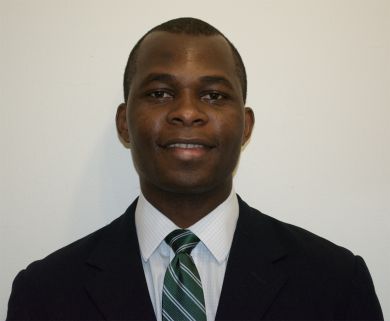Student wins grant to pursue kidney cancer research
Weill Cornell Medical College student Abimbola Ayangbesan '18 has received the Ferdinand C. Valentine Medical Student Research Grant in Urology from The New York Academy of Medicine, which works to improve the health of people in New York City and cities across the world through its Institute for Urban Health.
The grant is awarded to as many as three medical students attending school in metropolitan New York who are committed to conducting basic or clinical research in urology over the summer. The academy provides a $4,000 stipend to support the students as they pursue 10- 12-week mentored research projects, the findings of which they will present at the Medical and Dental Student Forum on Aug. 18 in New York City.
"It's an honor to have been awarded the grant," said Ayangbesan, who first began urologic oncology research in bladder cancer patients the summer after his first year while working with Dr. Douglas Scherr, the Ronald Stanton Clinical Scholar in Urology and a professor of urology at Weill Cornell Medicine. "Having someone appreciate the undertaking of your project makes you believe you're moving in the right direction. It's motivation to keep on doing what I do."
Working with Dr. Scherr, Ayangbesan will examine a type of fatty tissue called white adipose tissue (WAT) to determine if it can be a potential biomarker for kidney cancer when inflamed. Previous research has shown that the presence of inflamed WAT in breast tissue in obese breast cancer patients has been associated with worse long-term prognoses than in patients who aren't obese; obese patients are at a higher risk of the disease returning and have a lower survival rate. Ayangbesan will be testing fatty tissue samples from patients with kidney cancer — a condition in which obesity is a risk factor — to determine if there is a similar connection that exists between inflamed WAT in kidney cancer patients and their long-term outcomes.
"The grant allows me the opportunity to continue my research in urology," Ayangbesan said, "and to further broaden my knowledge and attain better understanding of various urologic pathologies and morbidities."



